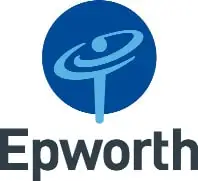The Need
Building an accelerated talent program for future nurse leaders.
The Solution
Epworth used DDI’s Leadership Potential Inventory to identify motivation and readiness.
The Result
Engagement, job satisfaction, and individuals feeling valued saw improvements of 23 percent, 28 percent, and 21 percent, respectively after program completion.
Australia's Epworth HealthCare is building an accelerated talent program for future nurse leaders.
Imagine operating the largest not-for-profit healthcare organization in the state of Victoria, Australia—and one that continues to redevelop its major local infrastructure while adding a brand-new regional hospital.
Would talent be front of mind? Absolutely.
With this growth, which included a new teaching hospital in Geelong, came the need for Epworth HealthCare’s senior leaders to think ahead and identify the most important roles that would need to be developed to ensure a ready pipeline. Nurse Unit Managers (NUMs) are a critical piece of the leadership puzzle—responsible for building, maintaining, and enhancing Epworth’s relationships with patients, staff, and doctors. They are on the front line, delivering excellence in clinical care while ensuring that Epworth’s culture of compassion, community, accountability, and respect are ever present.
Nicole Waldron, Executive Director of Epworth Freemasons and Richmond, sees NUMs as crucial to Epworth’s success: “They are the critical function in terms of relationships with patients, families and doctors. They are at the center of our business.”
With the opening of Geelong and the huge expansion of Epworth’s largest site in Richmond, there was an amplified need for effective and driven NUMs, so executives set a lofty target that at least 50 percent of new NUM roles would be filled internally.
The executives agreed that this was key to ensure Epworth’s strong culture would be maintained. However, the target was compromised by the demographic make-up of the NUM population, with maternity leave a common occurrence that resulted in even more roles to fill. A sensible solution was to fast-track the development of a program for current employees to receive training and experience, so they could be ready to meet Epworth’s future business challenges.
“We knew that the NUM role was a business-critical one, mainly because of Epworth’s high growth agenda,” says Alana Goldman, Organizational Development Consultant. “The organization undertook to invest in a three-year strategic program that would build capability among our current NUMs to develop a pipeline of future NUMs.”
The first step was to understand everything the NUM role encapsulated, in order to create a clear Success Profile. This included competencies, knowledge, experience, personal attributes, and the motivation needed to succeed in this high-stakes, dynamic position. The Success Profile was built to attract aspiring NUMs, but in particular the Associate Nurse Unit Managers (ANUMs). The ANUM role is a "stepping stone" role before becoming a manager of the full unit.
From this target, the Future NUM program was born.
Upfront Assessment to Gauge Readiness
Recognizing that developing staff talent (succession pipelines for potential gaps appearing in the future) isn’t a one-time event, Epworth partnered with DDI to design a year-long, multi-faceted learning journey. The goal was to rapidly develop ANUMs into managers with strong leadership skills and well-rounded experience, ready to lead the next phase of Epworth’s growth. To determine which ANUMs to include in the program, Epworth used DDI’s Leadership Potential Inventory to identify motivation and readiness.
NUMs are “at the center” of Epworth’s business
All participants then completed a day-in-the-life assessment which saw them engage in a simulated environment as a NUM in a fictitious hospital, meeting with other organizational staff and dealing with various operational issues. This experience exposed participants to the breadth and depth of challenges involved in being a NUM. It also included a personality assessment, which Linda McGinn, program participant and a current NUM, felt was particularly valuable: “The results of my assessment helped me see which areas I can build on to become a better leader. Knowing where I needed to improve helped me to shape conversations.”
The assessment data was used to create individual development plans for each ANUM, as well to as inform the design of the formal learning portion of the journey.
Targeted Learning and Application
Much thought and planning went into the design of the Future NUM Program to ensure it delivered the rapid and focused growth intended. Formal leadership development—aligned with competencies included in the NUM Success Profile, such as Customer Focus, Partnerships, and Coaching—was delivered over the course of the year with a two-month cadence that allowed for minimal time off the job and adequate time to apply what was being learned.
Program At-A-Glance
- Need to prepare leaders to become Nurse Unit Managers (NUMs).
- One-year learning journey supported by additional coaching and development.
- Epworth met goal of filling 50% of NUM roles internally.
- 95% of participants reported feeling better prepared to become a NUM.
Courses from DDI’s Foundation Subscription leadership development program formed the nucleus of the program. Tools such as communication, delegation, and coaching helped ANUMs understand and practice the very leadership behaviors they are expected to demonstrate daily as NUMs. This training was supplemented by Epworth-specific training in time management, planning, and recruitment, and provided the participants with both the leadership and operational skills needed for success in the NUM position.
Participants selected a project to complete during the learning journey focused on an area critical to Epworth’s success. Participant projects included those aimed at patient/quality or safety improvements, improvements focused on staff engagement, and doctor satisfaction and relationships.
Many additional elements to the program, such as each participant being assigned a mentor, helped build networks, made it easier to navigate the Epworth culture, and allowed for additional reflection, feedback, and guidance. ANUMs and mentors were matched based on development needs, and care was taken to ensure a safe and confidential mentoring relationship and clear separation from operational reporting lines, often achieved by assigning mentors from a separate division.
Momentum can be challenging to maintain, so participants were responsible for driving the relationship, taking accountability, and ownership. Mentors were involved along the entire journey, from participating in the program kick-off to coaching during monthly catch-up meetings, to providing feedback on the final project presentations.
Rennie Fotopoulos, Director of Clinical and Site Services at Epworth Hawthorn Rehabilitation, mentored a future NUM during the program, and said that the discussions with mentees were open forums that provided a lot of flexibility to cover a range of topics.
“There was no formal agenda around the mentoring meetings. They covered some key issues or themes, what the future NUM wanted to discuss, ask opinions on, seek my perspective on. We’d reflect on these together, and help the future NUM to extend their thinking and come up with solutions.”
Trying on the NUM Role
Perhaps most impactful, the learning journey also incorporated what Epworth calls “acting opportunities” to give participants the opportunity to actually do the NUM job in real time, in the real world. Acting opportunities involve ANUMs stepping into the role of NUMs for an extended period of time (often covering for a NUM who is out on leave or to temporarily fill an open position). This powerful experience brings the learning to life, giving a realistic preview of the NUM role to help build confidence, competence, and motivation. And because the acting opportunities were assigned across divisions, they helped to break down organizational barriers and expand participants’ networks.
At the end of the year-long journey, a celebration dinner was held with participants, their managers, and executives to celebrate the achievement.
Program participants reported increased collaboration among team members.
ANUMs were given the option to continue their education and earn a Diploma of Leadership and Management from Swinburne University, funded by Epworth. The development offered during the program was mapped to the diploma and additional in-house sessions were held to complete the program.
Following the year-long development journey, Epworth used DDI’s 360 tool to gather feedback from the participants’ managers, direct reports, peers, and other stakeholders, as well as conducting behavioral interviews with participants to find out where they had progressed, and which areas still needed focus.
Additional Coaching and Development
At the end of Year 1 of the Future NUM program, a small group remained in the talent pool, so there was a need to design some additional development that looked different to what they had already completed. In Year 2 of the program, Epworth integrated a unique skill practice activity called “Leadership Labs” into the development experience.
During a Leadership Lab, participants practiced core leadership skills, such as coaching or delegating, in an experiential way, receiving immediate feedback from their peers and the facilitator. Participants worked in small groups and were filmed during the skill practice activity. Straight away, the video would be played back to the group, and everyone was given an opportunity to provide feedback.
The Leadership Labs enabled in-the-moment coaching, and filming gave participants a chance to self-reflect, which involved some apprehension, but had a tangible impact on their confidence and personalized the learning experience.
Seeing Results
The investment in the Future NUM program has resulted in significant impacts both on individuals and the business.
A formal impact evaluation was performed to assess the impact of the program on participants’ behavior, work group, and the organization.
Engagement, job satisfaction, and individuals feeling valued saw improvements of 23 percent, 28 percent, and 21 percent, respectively after program completion.
These metrics are key drivers of retention, which is critical to Epworth’s success and has helped to meet its goal of filling 50 percent of roles internally.
“There’s excitement around the program … It’s building a culture for our current leaders, and for our future leaders.”
Individual, group, and organizational impact were also measured, with results showing drastic improvements. Ninety-five percent of participants said the program helped them focus on their development for current and future role, and the same number reported feeling better prepared for being promoted into a NUM role.
All participants reported increased collaboration among team members and an increased focus on developing their team members. From an organizational impact perspective, 95 percent said the Future NUM program created a higher standard of leadership within the pool.
Maree Feery, Executive Director of People and Culture and co-Executive Sponsor with the Executive Director of Clinical Services, recognizes the impact the program has had on engagement and abilities of the ANUMs, along with the improvements in how the role of NUMs is viewed within Epworth: “The program has given ANUMs more confidence, more opportunities, much more support, and more in-role development. We’ve built confidence. We’ve built capability at that level. And we’ve been quite successful in making the NUM and the ANUM roles more attractive.”
Lisanne Casement, Senior OD Consultant, notes that the impact goes beyond the numbers: “If you asked every participant if they would participate again, you would get a very consistent answer along the lines of ‘Absolutely, and I would recommend other people do it because what I’ve gotten out of it is much more than I could have thought. I would not be able to do the role that I do now had I not done this program.’ The gratitude and appreciation shown by the participants is testament to the impact of the program has had.”
Others see the impact on the culture of leadership at Epworth. “There’s excitement around the program,” says Fotopoulos. “It’s building a culture for our current leaders, and for our future leaders as well.”
Topics covered in this blog


